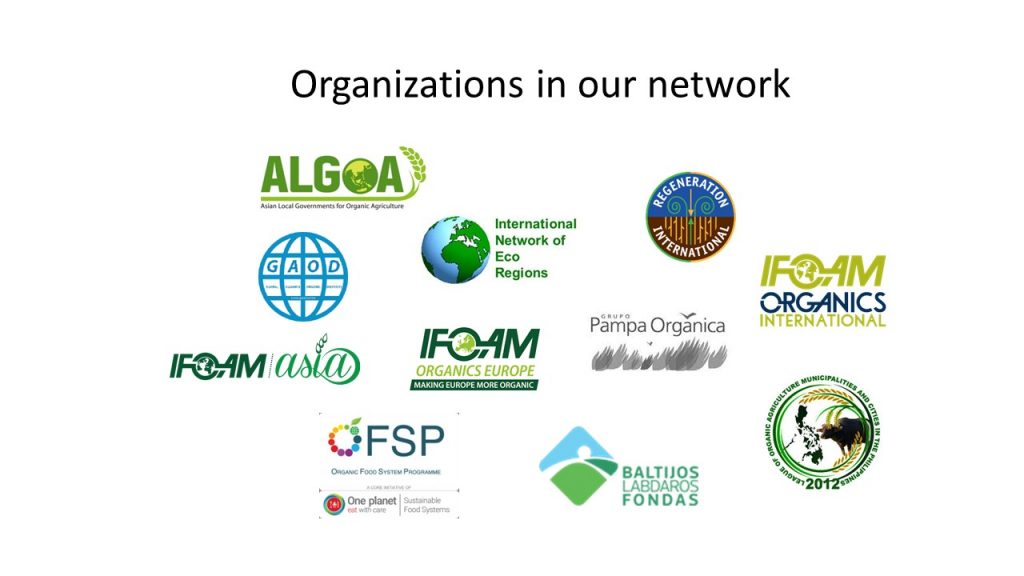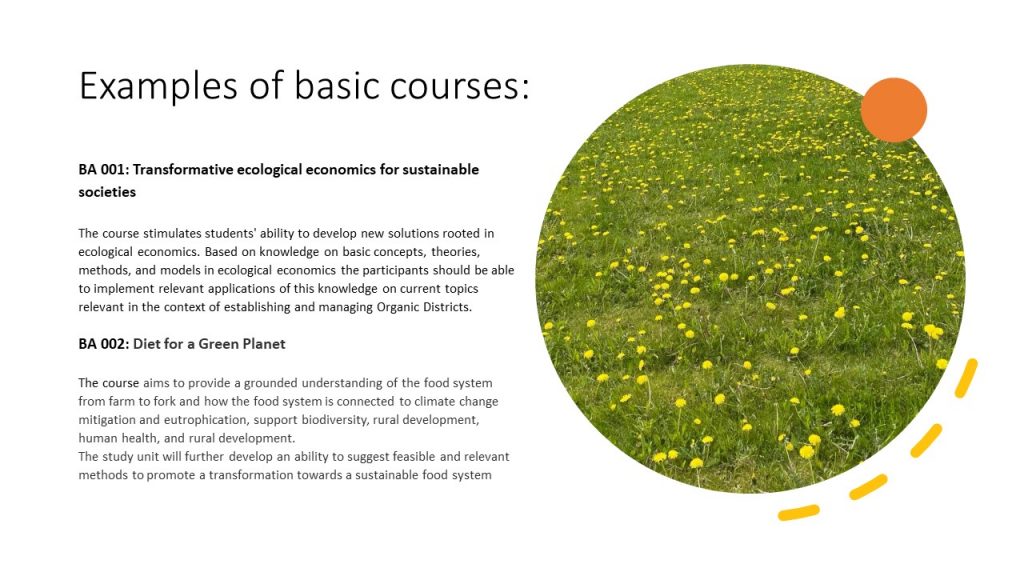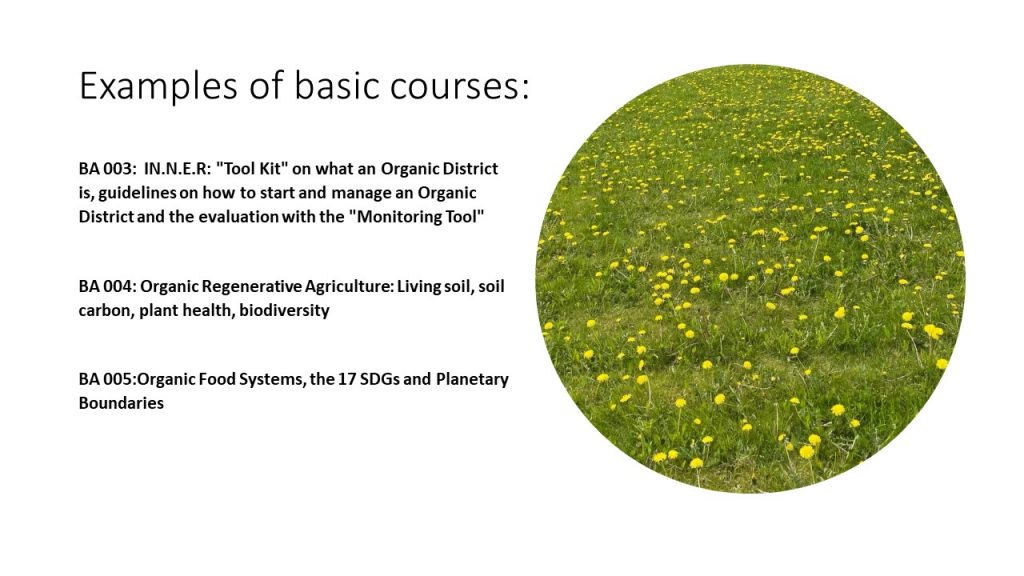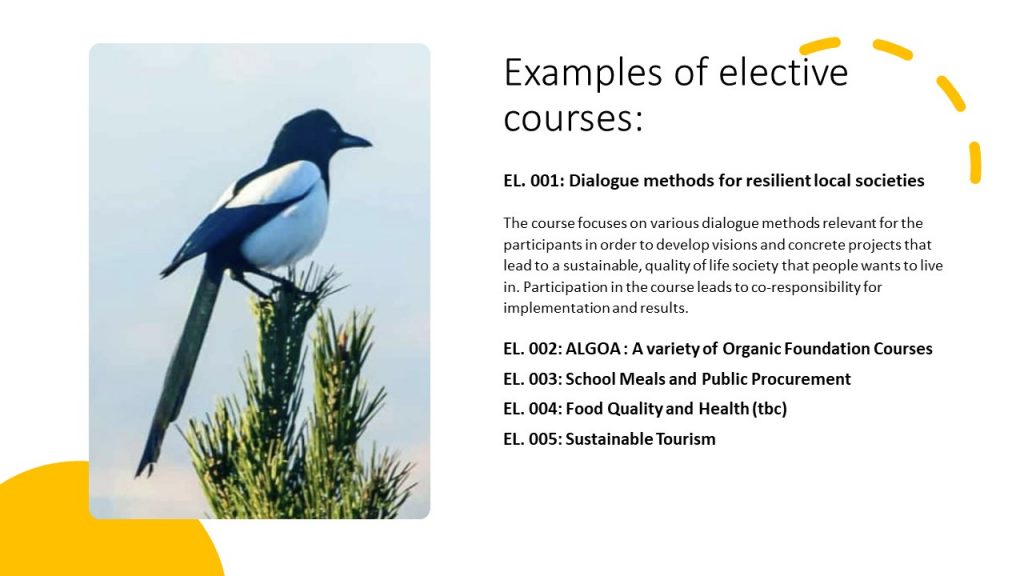A brief presentation by Ove Jakobsen
Peoples Academy is a global transdisciplinary network and collaborative community of concerned scholars, researchers, educators, practitioners, farmers, creative artists, and others who offer courses to people world vide that inspire deep systemic change towards sustainable life-enhancing societies for humans, animals, and the whole nature. Peoples Academy is established as an integrated part of the common framework and guidelines for the development and implementation of Bio districts/Organic districts/Eco regions, etc. in Europe and globally.
Peoples Academy is taking an inclusive food system approach and gives a voice to the majority of the world’s small-holder family farmers and fisher and herding families, indigenous people, pastoralists and foresters. We offer courses based on values, ideas and knowledge to be transformed into action that stimulates the lives of all people and the whole ecosystem on our planet. To do this a frame of dialogue-based cooperation and shared values is needed. Our relational approach offers a model of collaborative action that is constantly evolving and growing with the people involved. By being co-creative all participants also become co-responsible for the development of Peoples Academy, in other words Peoples Academy is a bottom-up initiated project.
The approach we are taking is to share common core principles, values, approach and messaging that flows into a universal understandable framework and basic activities of research and practice, so that globally we can become a unified, louder and more powerful voice for deep systemic change. This allows a wide range of diversified initiatives to connect to each other strengthening their own identity but being able to co-create a global movement
Peoples Academy offers basic (BA) and elective courses (EL). Examples of basic courses; BA 001: Transformative ecological economics for sustainable societies, BA 002: Diet for a Green Planet, BA 003: IN.N.E.R: “Tool Kit” on what an Organic District is, guidelines on how to start and manage an Organic District and the evaluation with the “Monitoring Tool”, BA 004: Organic Regenerative Agriculture: Living soil, soil carbon, plant health, biodiversity and BA 005:Organic Food Systems, the 17 SDGs and Planetary Boundaries. Examples of elective courses; EL. 001: Dialogue methods for resilient local societies, EL. 002: ALGOA : A variety of Organic Foundation Courses, EL. 003: School Meals and Public Procurement, EL. 004: Food Quality and Health, EL. 005: Sustainable Tourism.
The world needs deep change and we could be a driving force in the great transition. Instead of asking, How the future will be?We ask: How we want the future to be?
Info: Prof. Ove Jakobsen: ove.d.jakobsen@nord.no




